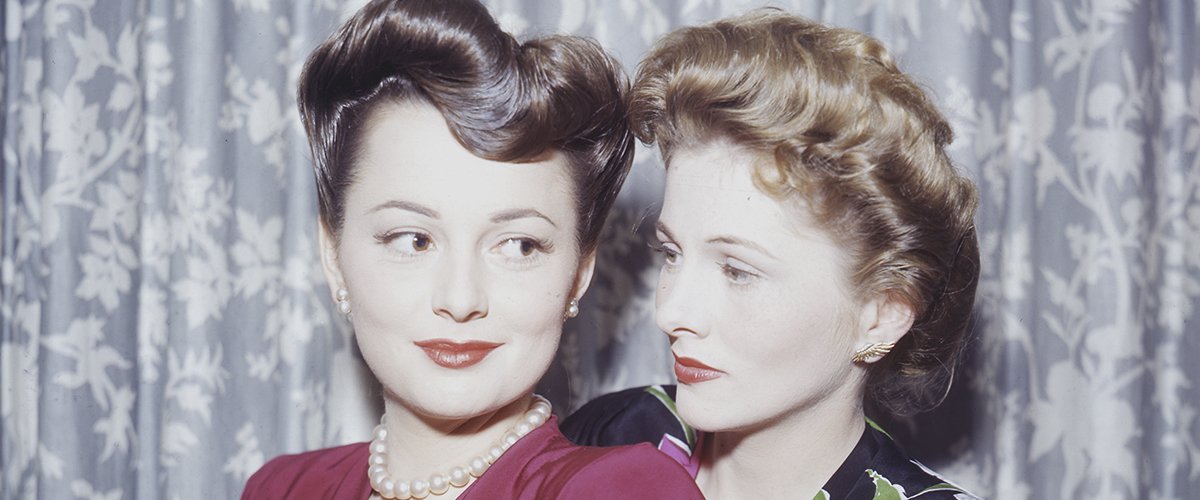
Inside Olivia De Havilland & Joan Fontaine’s Feud That Seemingly Started at Birth & Ended in Death
The “Feuding sisters” fought over everything, and their dysfunctional relationship affected all areas of their lives, from work to their love lives to their connection with their mother.
Olivia de Havilland and Joan Fontaine —two sisters, two brilliant and renowned actresses, and one endless feud. Despite their many similarities, rivalry seemed to prevail throughout most of their relationship all the way from childhood, and it lasted a lifetime.
The rival sisters, however, learned the lessons that come in difficult times. Despite the constant feuds, they eventually managed to respect each other, and that was the beauty of it.
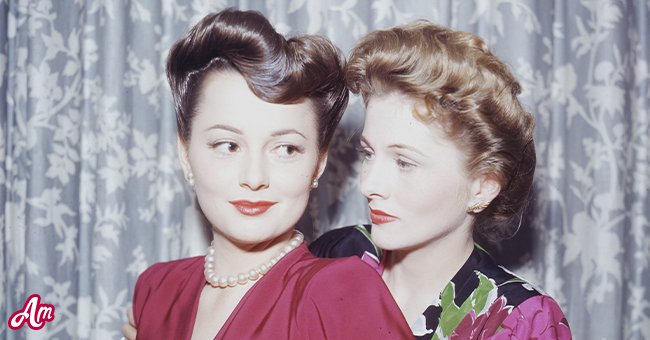
Actress Olivia de Havilland (left) with her sister, actress Joan Fontaine, circa 1945. | Source: Getty Images
THE “FEUDING SISTERS” — FROM CHILDHOOD UNTIL THE VERY END
Olivia de Havilland lived a long and successful life. The Award-winning actress lived until the age of 104 and received many accolades throughout her 60 plus years of acting career.
The actress, however, is also well-known for her endless feud with her younger sibling, Joan Fontaine. The rivalry sprung up in childhood with what one calls a regular siblings fight.
Olivia once said that their biggest problem — and perhaps the beginning of a lifetime feud — is that they had to share the bedroom. The argument between the young girls would often escalate to a physical altercation, from slaps to hair pulling.
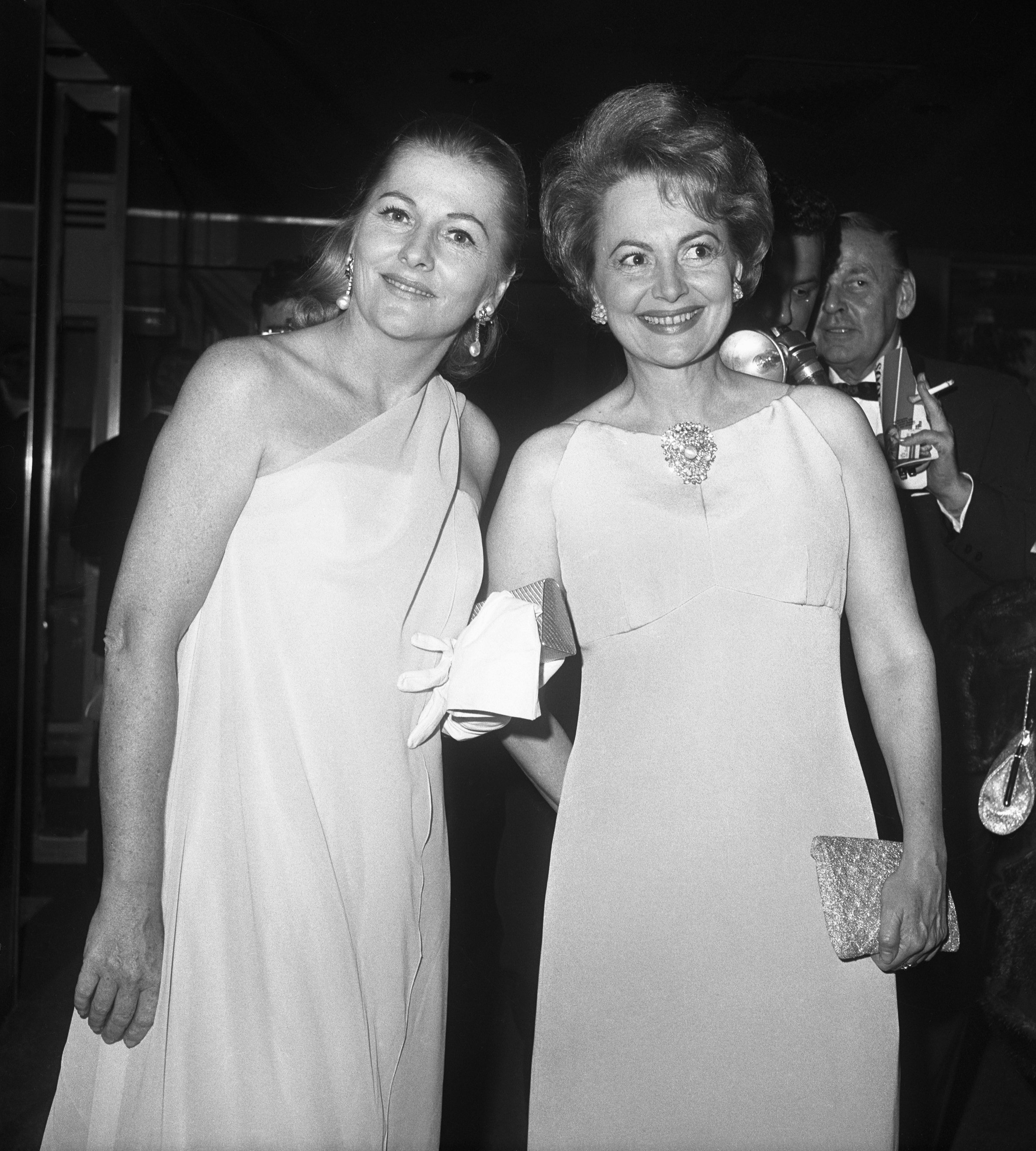
Olivia de Havilland and sister Joan Fontaine during Marlene Dietrich's Opening Party - September 9, 1967 at Rainbow Room in New York City, NY. | Source: Getty Images
In Joan’s 1978 memoir “No Bed of Roses,” she shared about a jostle between the two that ended up in the hospital. Joan was in the swimming pool and tried to pull Olivia in by the ankle, but the other sister resisted, resulting in Joan fracturing her collarbone.
THE FAMILY ENVIRONMENT DIDN’T HELP
The sister’s dysfunctional relationship is a family affair, and perhaps it was worsened due to their family environment. They moved to different countries — from Britain to Japan to the US — and their distant and perfectionist mother remarried the rigid and disciplinarian George Fontaine, and the list goes on.
Joan and Olivia shared that their stepfather installed a military regimen at home. When they misbehaved, George would force them to drink cod liver oil to induce vomiting. Alternatively, he’d choose to beat them with a wooden hanger, leaving the girls covered with bruises.
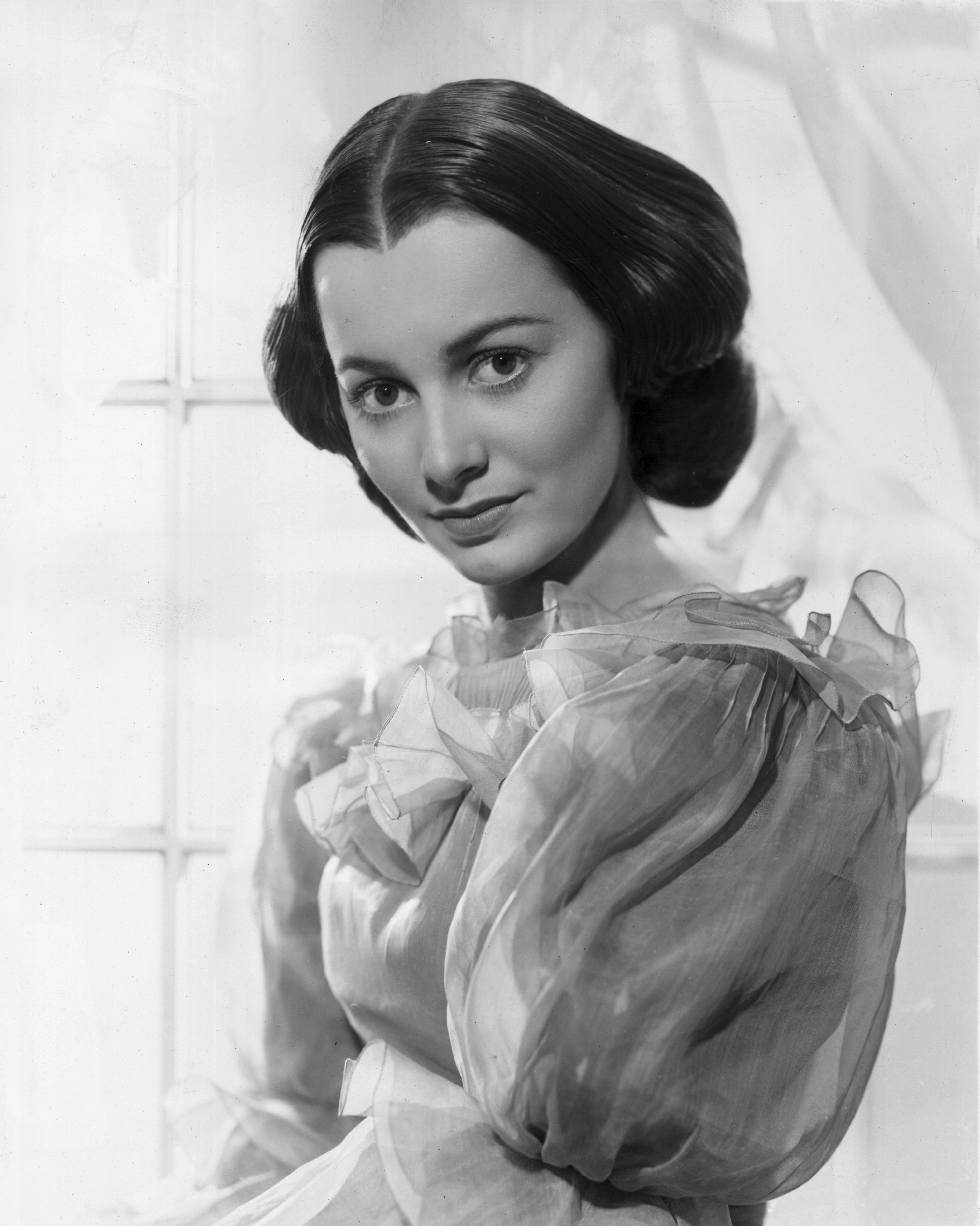
circa 1939: Promotional studio portrait of American actor Olivia de Havilland, standing in front of a window in a promotional portrait for 'Gone With The Wind'. She wears a gown, with her hair parted and pulled back. | Source: Getty Images
Still, in Joan’s book, the late actress said that even after her career took off, her mother never came to see one of her movies, and in an interview with CBC, neither had she discussed or talked about them.
In fact, in the same 1979 interview, she admitted that her mother told Joan’s first husband, Brian Aherne, that her daughter was much more “real in the screens than in real life.”
The rivalry also escalated into their romantic interactions. Joan wed Olivia’s ex-boyfriend, the actor Brian Ahernein 1939.
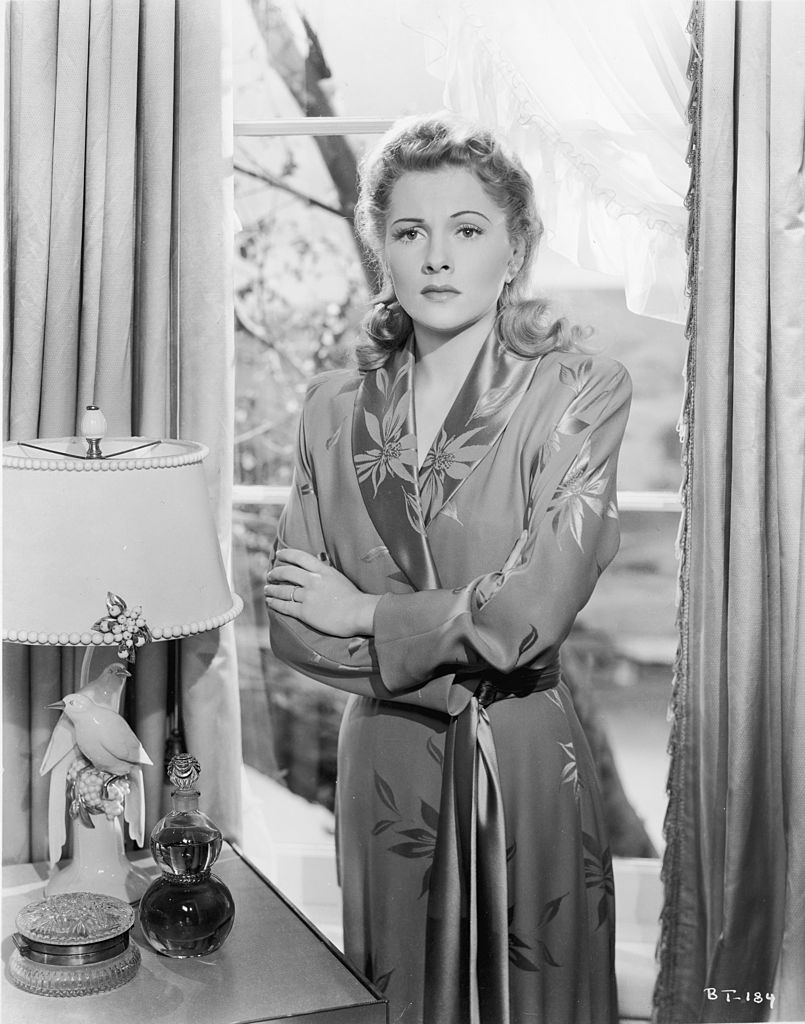
1941: Japanese-born American actor Joan Fontaine stands with her back to a window in a still from the film 'Suspicion,' directed by Alfred Hitchcock. | Source: Getty Images
THE SISTER FEUD GOES TO HOLLYWOOD
As a teenager, Joan went to spend a few years with her stepfather in Japan. When she returned, she found her sibling taking the acting path and decided to do the same. Olivia landed the Warner Bros. screen adaptation of Shakespeare's “A Midsummer Night's Dream,” and she later recalled:
“Joan came with Mummy to opening night of ‘Dream’ [...]. didn't even recognize her. She had bleached hair. She was smoking. She was no longer my younger sister."
Joan came to live with her sister and mother, but Olivia thought there was space for only one De Havilland, so she recommended that Joan change her stage name.
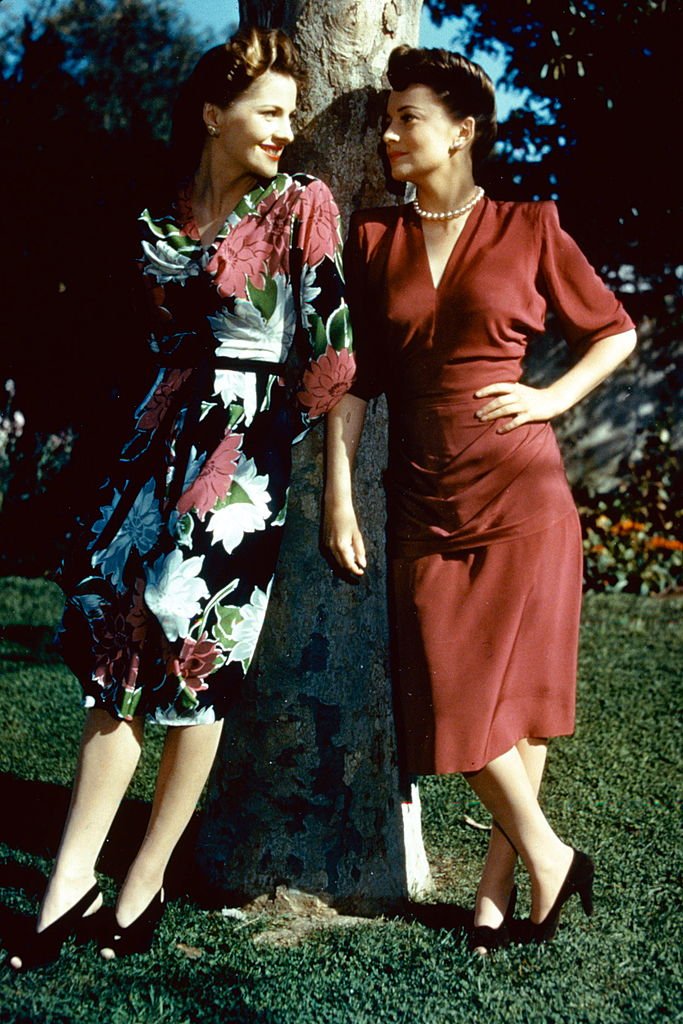
Full-length portrait of Joan Fontaine (left) and her sister, Olivia de Havilland, both British actress, standing in conversation by a tree, circa 1945. | Source: Getty Images
Joan didn’t like the idea, but a fortune teller convinced her otherwise. The psychic told her that the stepfather’s “Fontaine” surname was a successful name, so she changed it.
After her Shakespeare piece, Olivia’s contract with the Warner Bro. brought her stardom in movies like "Captain Blood" (1935) and "The Adventures of Robin Hood" (1938).
She called some attention in Hollywood, and after the latter, MGM invited her to play Melanie in “Gone with the Wind.” Jack Warner declined when they asked Warner Bro. to take Olivia for another movie, Hitchcock’s “Rebecca.”
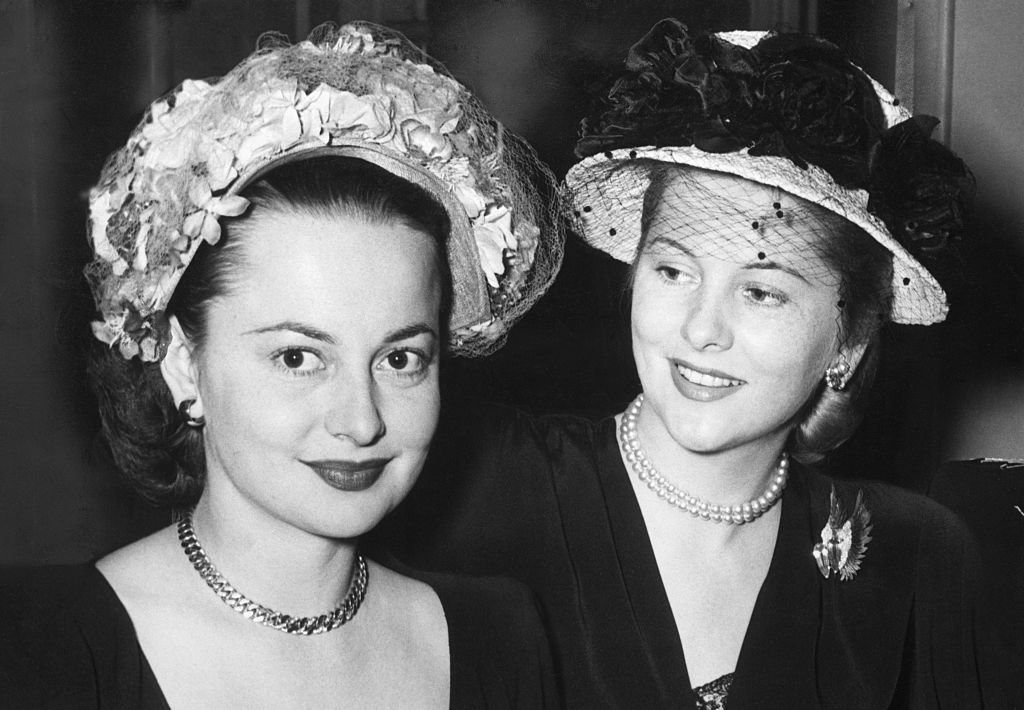
Olivia de Havilland and Joan Fontane, circa 1940. | Source: Getty Images
So, MGM film producer David O. Selznick requested Olivia’s sister instead. The role was one of the most important in Joan’s career, leading her to an Oscar nomination for Best Actress.
Joan didn’t get the Oscar, but she was nominated again in the upcoming year for her role in another Hitchcock film, “Suspicion.” The rivalry made its way to the Academy Awards ceremony in 1942, in which the sisters competed against each other in the Best Actress category.
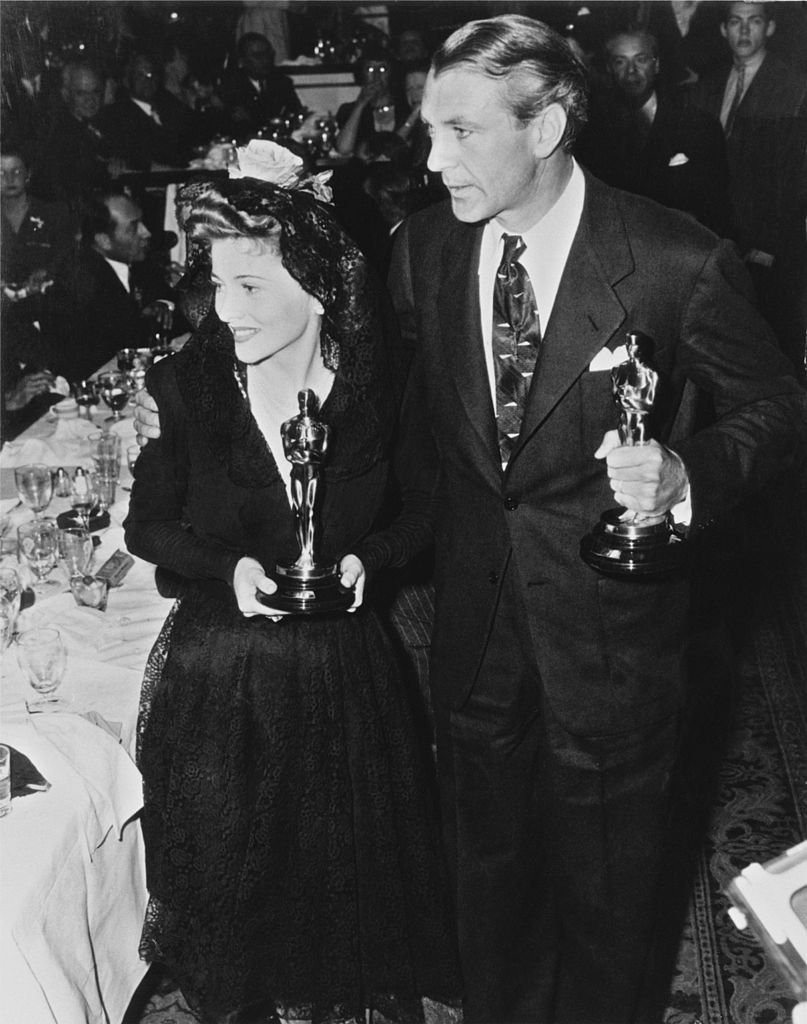
Joan Fontaine (1917 - 2013) holding her 'Best Actress' Oscar for her role in 'Suspicion', and American film actor, Gary Cooper, with his 'Best Actor' Oscar for his role in 'Sergeant York' at the 14th Academy Awards at the Biltmore Bowl, Los Angeles Biltmore Hotel, USA, 26th February 1942. | Source: Getty Images
Olivia was expected to win, but Joan took the Oscar home instead. About that evening in which Joan beat her sister, she shared in her memoir:
“All the animus we'd felt toward each other as children, the hair-pullings, [...], the time Olivia fractured my collarbone, all came rushing back in kaleidoscopic imagery. My paralysis was total."
But Olivia also had her moment of triumph. In 1947, she took home the Oscar in the Best Actress category in “To Each His Own.”
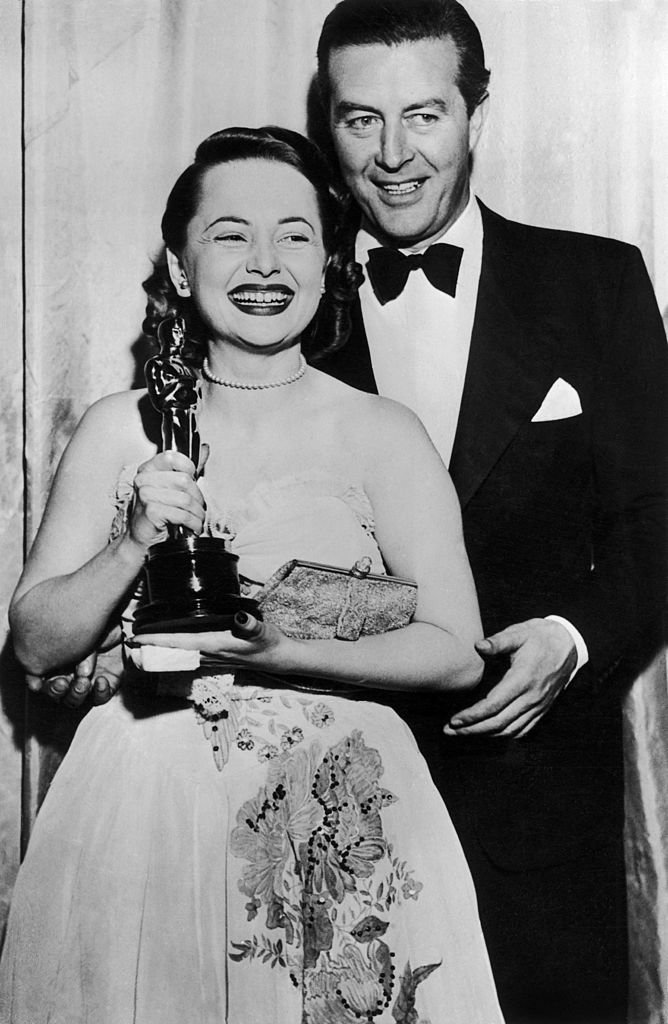
Olivia De Havilland With The Best Actress Oscar For The Film "To Each His Own", In 1947. | Source: Getty Images
The sister’s estrangement continued for years on, even when their mother died. They haven’t spoken to each other at their mother’s memorial. Olivia was taking care of their mother when she got ill, and when she passed away, Joan only received the news two weeks later:
“Olivia sent me a telegram but I was on tour so it got mailed to me two weeks later at my next stop. She [Olivia] didn’t bother to find where I could be reached or to telephone me.”
At an Oscar reunion in 1979, the two sisters were booked to sit far away from each other. A decade later, when Joan found out that her hotel room was near her sister’s, she asked to change.
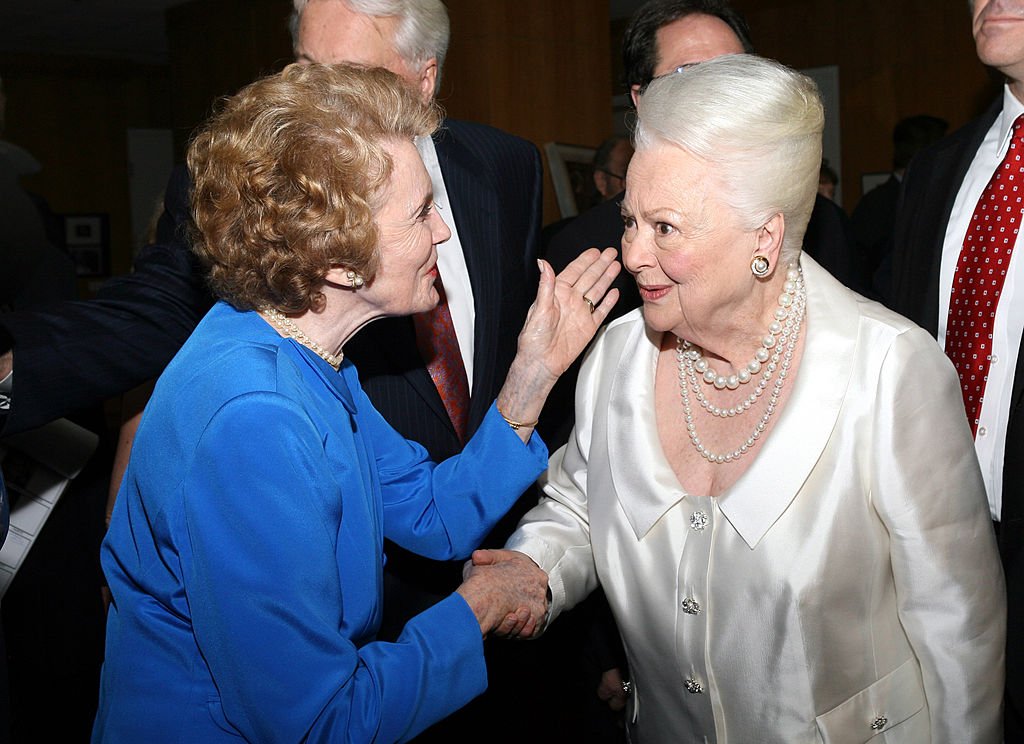
oan Leslie and Olivia de Havilland during Academy of Motion Picture Arts and Science Presents Tribute to Olivia de Havilland at Academy of Motion Picture Arts and Sciences in Beverly Hills, California, United States. | Source: Getty Images
The estrangement ceased with Joan’s death in 2013. Olivia released a note expressing her sadness at the passing of her sister. In 2017, Olivia was played by Catharine Zeta-Jones in the FX series “Feud: Bette and Joan.”
The series dramatized another well-known Hollywood feud outside the family affair: the one between the stars Bette Davis and Olivia de Havilland. Olivia didn’t like her representation in the series, so she sued FX for a "false light, with intentional or reckless disregard for the truth."
news.AmoMama.com does not support or promote any kind of violence, self-harm, or abusive behavior. We raise awareness about these issues to help potential victims seek professional counseling and prevent anyone from getting hurt. news.AmoMama.com speaks out against the above mentioned and news.AmoMama.com advocates for a healthy discussion about the instances of violence, abuse, sexual misconduct, animal cruelty, abuse etc. that benefits the victims. We also encourage everyone to report any crime incident they witness as soon as possible.
